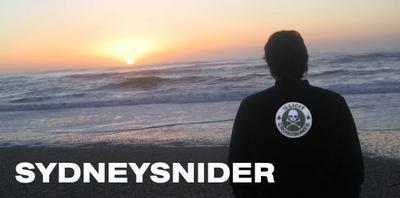Socrates! Come over here!
Different countries, different mores. When I came to Australia, I remember wondering why people never ask real questions, only ones where no real answer is expected, just a clichee (like "How are you?", "Nice day, isn't it?" and "So, how do you like Australia?"). However, in contrast to encounters with, say, your average American, you never had the impressions that your mainstream Aussie was dumb (ignorant maybe, dumb no), merely.... And that's where I always stopped - I couldn't figure out what was going on. It was like there was a point in conversations where their minds came up against a towering wall and shuddered to a halt with a screeching: "Aaaah... Dunno mate...".
In return, conversations like this always made me feel like "Mr Knowitall", straight outta Primus's song: "They call me Mr Knowitall / I am so eloquent / Perfection is my middle name / And whatever rhymes with eloquent..." After a while, you just feel like a nagging, bitching, constantly complaining ingrate, 'cos in contrast to everyone around you, that's what you are. Nevermind that in the old country you drove people mad with what a friend once called "intellectual and moral sloth" (but hey - no-one's perfect).
And then, TaDAA!, I found an article about Philip Cam in The Australian. Really, the whole article should just be copied here, but in short: Philip has authored a revolutionary method of teaching. Revolutionary enough to merit an article in The Australian. Great results, immensely sucessful, spreading like wildfire through schools all around Australia, unheard-of techniques and methods... And what, you ask (not me, I know), is this barnstorming innovation in didactics? Well, here's a few excerpts from the article (but seriously - go and read the whole thing, it's amazing):
"Unreliable Reasoning Technique" pretty much describes Australian public discourse - and would make a great name for Russell Crowe's next, ahem, "band", or any Australian pub band for that matter. "Tonight, live at the Glassed and Pool Cue: U.R.T.!!!!"
All of which, of course, begs the question: what on earth have they been teaching their kids here over the years? If they didn't learn how to think for themselves, who did they learn to think like?? Interestingly enough, I had to look up the expression "learning by rote" when first living in England - I'd never heard it before and didn't know what it was.
The flipside of a continental European, Socratic, education of course is that people overshoot the target and question, debate and critique everything instead of lightening the fuck up every now and then. Be interesting to see how this "revolution" catches on...
In return, conversations like this always made me feel like "Mr Knowitall", straight outta Primus's song: "They call me Mr Knowitall / I am so eloquent / Perfection is my middle name / And whatever rhymes with eloquent..." After a while, you just feel like a nagging, bitching, constantly complaining ingrate, 'cos in contrast to everyone around you, that's what you are. Nevermind that in the old country you drove people mad with what a friend once called "intellectual and moral sloth" (but hey - no-one's perfect).
And then, TaDAA!, I found an article about Philip Cam in The Australian. Really, the whole article should just be copied here, but in short: Philip has authored a revolutionary method of teaching. Revolutionary enough to merit an article in The Australian. Great results, immensely sucessful, spreading like wildfire through schools all around Australia, unheard-of techniques and methods... And what, you ask (not me, I know), is this barnstorming innovation in didactics? Well, here's a few excerpts from the article (but seriously - go and read the whole thing, it's amazing):
"Basically the idea is to get kids to be able to inquire, to think for themselves, and to have a reflective life," Cam says. "They don't get answers, they raise issues."
And an unreflective mind that jumps to conclusions, he says, will be carried through into adulthood, crippling a person with unreliable reasoning techniques and, on a wider scale, contributing to social ills such as prejudice and racism. Cam has coined a term for this curse. He calls it being "insocratic". "It was Socrates who said the unexamined life was not worth living," Cam says.
"If kids were to come out of our schools illiterate and innumerate, the community would be appalled. But they come out of our schools insocratic and no one notices. By that I mean being able to think about the issues of importance in your life, to be able to have a deeper understanding of the meaning of things, and to be able to make good reflective decisions. We hope this ability will just kind of emerge, but we don't actually pay attention to it."
[A teacher in Western Australia] says the philosophy programs have also helped to combat entrenched patterns of bullying at school. "They start to realise that you can disagree with someone without disliking them and that stops a lot of fights in the playground."
"Unreliable Reasoning Technique" pretty much describes Australian public discourse - and would make a great name for Russell Crowe's next, ahem, "band", or any Australian pub band for that matter. "Tonight, live at the Glassed and Pool Cue: U.R.T.!!!!"
All of which, of course, begs the question: what on earth have they been teaching their kids here over the years? If they didn't learn how to think for themselves, who did they learn to think like?? Interestingly enough, I had to look up the expression "learning by rote" when first living in England - I'd never heard it before and didn't know what it was.
The flipside of a continental European, Socratic, education of course is that people overshoot the target and question, debate and critique everything instead of lightening the fuck up every now and then. Be interesting to see how this "revolution" catches on...


<< Home